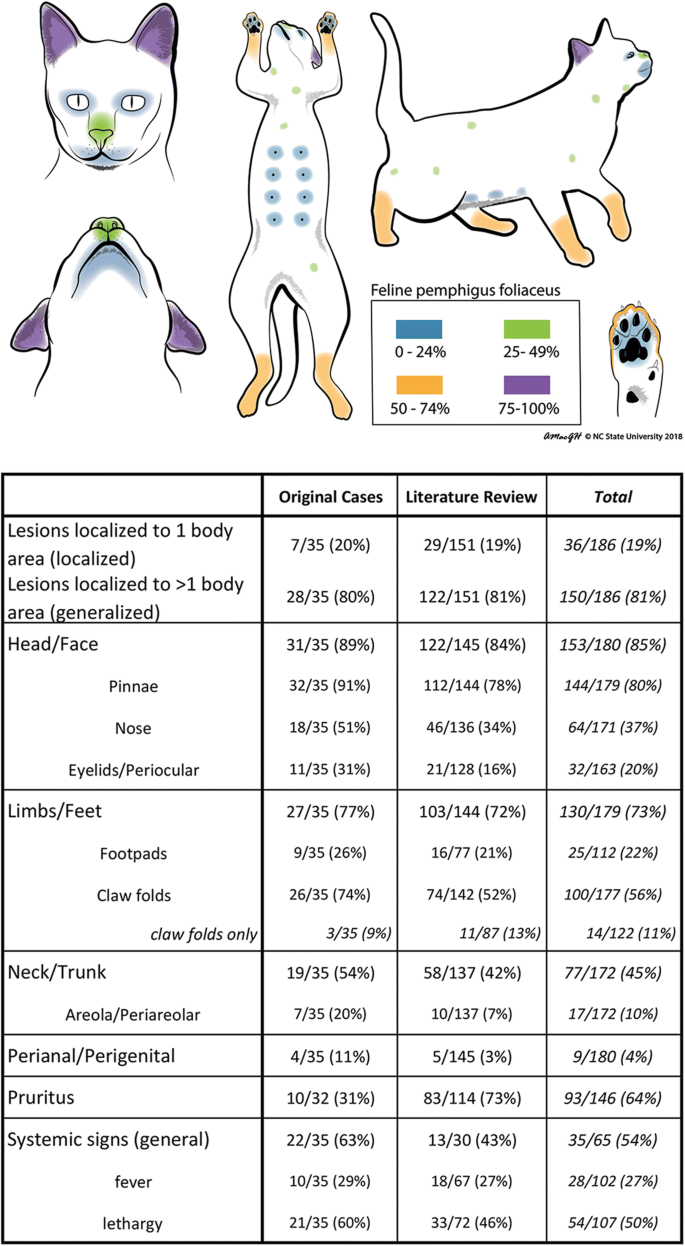
With full transparency Dr. Most cases of cat FIV come through an infected cat passing it to another through a deep bite.

Immune System Responses in Cats.
How do cats get autoimmune disease. Pemphigus Foliaceus PF - The term means leaf-like pemphigus. This is the most common autoimmune skin disease of cats. With PM the patient develops crusts scabs and ulcers around the eyes ears footpads groin and bridge of the nose.
In cats lesions also develop at the toenail beds creating crusty sore feet. Cats and dogs can have an autoimmune disease just like humans. In this situation a cats immune system would become incapable of distinguishing between its own cells or tissues.
Since it believes that they are foreign the immune system basically attacks the cats body even though it is healthy. Systemic autoimmune disease occurs when antibodies that normally protect the body from infection are turned on the cats own cells and cause tissue damage. Immunodeficiencies Caused by Viruses Parvovirus occurs in both dogs and cats.
This viral disease called feline panleukopenia causes a severe and short-term reduction in the number of neutrophils and in the lymphocyte responsiveness. Systemic lupus is a rare feline autoimmune disease caused by abnormal regulation of the immune system. In this condition the cats immune system recognizes the bodys own cells as foreign.
In cats with AIHA red blood cells are still being manufactured in the bone marrow but once released into the circulation they have a shorter-than-normal life span. This disease may also be called immune-mediated hemolytic anemia or IMHA. What causes autoimmune hemolytic anemia.
AIHA may be primary idiopathic or it may be secondary. Autoimmune disease in cats is one where antibodies or white blood cells are created and work against the body. Basically the cats immune system attacks itself.
This happens as a result of an imbalanced immune system. And who is in control of our kitties immune system health. Gingivitis may also be brought on by a number of infectious or systemic diseases including feline leukemia virus feline immunodeficiency virus feline calicivirus severe kidney disease diabetes mellitus and autoimmune disease.
Bone Marrow Reveals Autoimmune Disease. The doctors at the Veterinary Teaching Hospital finally determined the cat was suffering from primary immune-mediated hemolytic anemia. With full transparency Dr.
Hull explained to Lucys family that felines with this disease typically have a poor chance of responding well to the immune suppressant. Most cases of cat FIV come through an infected cat passing it to another through a deep bite. That makes outdoor cats especially vulnerable as they may end up in a territorial dispute that leads to.
In younger cats we tend to see issues such as flea infestation and blood parasites as a key driver of anemia. In older cats the causes tend to shift toward chronic disease of any organ systemsuch as renal kidney disease What is the Most Common Underlying Cause of Anemia in. Immune System Responses in Cats.
The primary role of the immune system is to defend the body against foreign invaders or abnormal cells that invade or attack it. To do this the immune system must distinguish between self and non-self. By recognizing invading microorganisms such as viruses chemical agents or other foreign.
Dental disease is one of the most common medical conditions seen by veterinarians. The most common dental problems seen in cats are gingivitis periodontal and tooth resorption. Periodontal disease is a term used to describe infection and associated inflammation of the periodontium and begins with gingivitis.
Some cats develop severe oral inflammation called stomatitis. The Immune System of Cats. The immune system consists of a network of white blood cells antibodies and other substances that fight off infections and reject foreign proteins.
In addition the immune system includes several organs. Some such as the thymus gland and the bone marrow are the sites where white blood cells are produced. There is no single cause of stomatitis.
The most prevalent belief is that it is caused by chronic viral infections such as calicivirus and herpesvirus. Cats with weak immune systems which can be the result of FIV and FeLV infection are prone to having chronic viral infections.